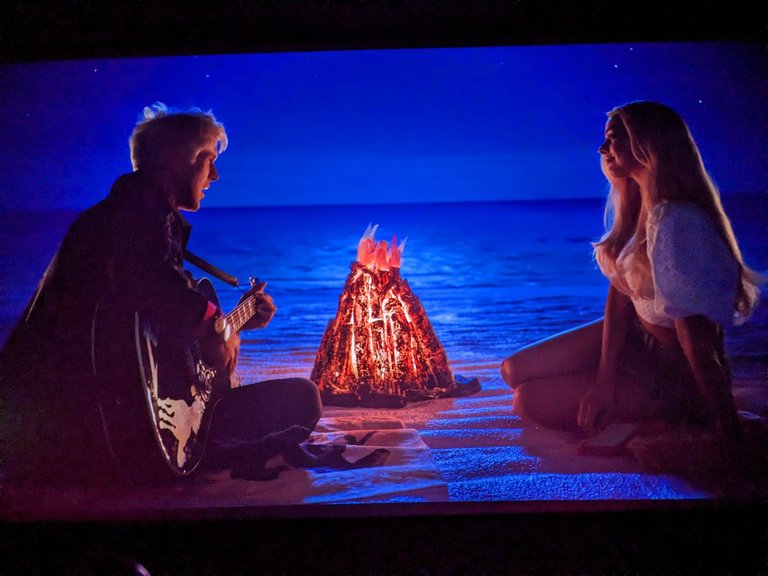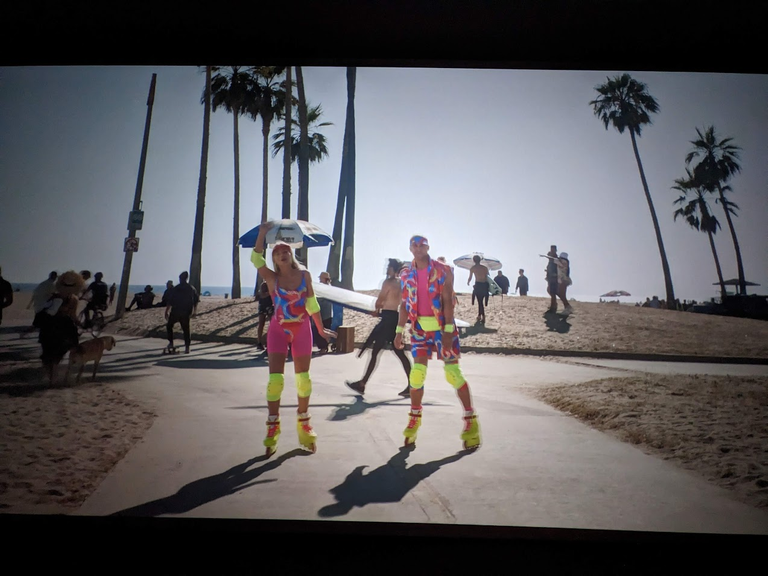Barbie
Greta Gerwig
As a film enthusiast, my initial reason to want to see the movie is none other than Greta Gerwig—she is an important filmmaker of this era and Im always curious about how the young ones are evolving. But I'm assuming for most people Greta is invisible, it was the actors (I too did have some fancy seeing Ryan Gosling as Ken) and the theme and the marvelous marketing the movie had, intent on cashing the nostalgia for colorful dolls, Barbies, which kind of became a synecdoche for a stereotypical blond woman, often a slang.
I can get behind Barbie’s colorful, feel-good family drama with a huge dose of positive awareness anent feminism and abolishing patriarchy. Watch it with friends and family. Although if we try to see the movie and its metaphors, I wish some of the things were handled differently. Barbieland perhaps represents womanhood and absolute matriarchy and all the things they can achieve in life, (yet that world is decorated with stereotypical designs and colors that are associated with women as an extension of patriarchy in real life), and men are neglected, and forgotten. After Barbieland re-established its constitution, it should have been a proper democracy with equal rights for Kens, along with finding individual existence, just like what the movie (and us) wish for the real world. Instead of that cherished outcome, the filmmaker mirrored Barbieland as opposed to ours, and Kens in that world would struggle to find rights for years to come and perhaps finally find equal footing someday as hinted in the movie. My question is—do Kens really need to suffer some more with slow changes? While an eye for an eye is fine in my book, reasonable too but that also seems spiteful and not transcendental. 'I’ve suffered much, so shall you.'—Isn't necessarily a positive thing.

At any rate, all the symbols of dominance over women, taking away opportunities, conditioning them to accept a limited version of themselves, from being cheerleaders, serveuses, and companies for women with no women in leading positions—all these are portrayed and used to make points in the movie with absolute clarity. In fact, they are so ostentatious that it’s hard not to think of the movie as a piece of propaganda (albeit a positive one), the question arises—do we need such a movie? We certainly do. Just like we need movies like “Don’t Look Up”, another piece of positive climate crisis propaganda. And like all such movies, there will be two groups, who will accept it, and who won’t, based on their own political biases and worldview.
Now, on another note, most propaganda movies fail to become cinema, hence, art. Barbie had some perks, with immaculate production design and outstanding performance from both leading performers—but it is so forgettable. Yes, I remember all the metaphorical symbols, and the homages to other films and appreciate them but the movie itself as an individual work left no impression. This hype won’t last. Barbie is no ‘Cléo from 5 to 7’, no ‘Portrait of a Lady on Fire’, no ‘Jeanne Dielman’, no ‘Daisies’—it holds no candle to the true feminist cinema, and perhaps it’s not trying to be. It is a borderline theme park with a very important social message. Enjoy the sensation while it lasts.

The photos are taken by me in the cinema hall.
You can read more of my film and literature related articles on my hive blog page.




